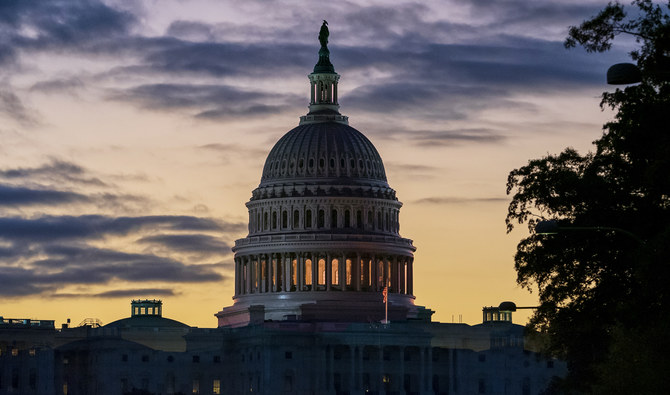WASHINGTON: The US House of Representatives, the lower house of Congress, has overwhelmingly recognized the Armenian genocide by 405-11 in a non-binding resolution.
It also adopted by 403-16 a draft bill for sanctions against senior Turkish officials, state-run bank Halkbank and the military due to Operation Peace Spring in northeast Syria. The bill aims to restrict the Turkish military’s access to financing and arms.
Turkey’s Foreign Ministry strongly condemned the passing of the resolution on the Armenian genocide, calling it “a meaningless political step” and saying “its sole addressees are the Armenian lobby and anti-Turkey groups.”
The ministry added: “Those who felt defeated for not being able to forestall Operation Peace Spring would be highly mistaken should they (have) thought that they could take vengeance this way.” Ankara summoned US Ambassador David Satterfield and condemned the sanctions bill.
The House of Representatives previously adopted similar non-binding resolutions recognizing the Armenian genocide in 1975 and 1984.
But this time, the two bills are likely to damage already-fragile ties between the two NATO allies.
They have had serious policy disagreements recently, particularly over US support for the Syrian-Kurdish People’s Protection Units (YPG), which Ankara considers a terrorist group.
Ozgur Unluhisarcikli, Ankara office director of the German Marshall Fund of the United States, told Arab News: “There’s now a very strong bipartisan consensus (in the US) against Turkey, and particularly against President (Recep Tayyip) Erdogan.”
Unluhisarcikli said: “Erdogan may save the day by cooperating with (US President Donald) Trump at critical junctures, but this cooperation only further angers Congress.”
US Sen. Lindsey Graham tweeted after the vote: “I expect the Senate will take up this cause and let Turkey unequivocally know that the United States will not sit on the sidelines as they create problems for us and our allies.”
Unluhisarcikli said multiple lobby groups are aiming to undermine Turkey in Washington, and Ankara does not have the capacity to fight back effectively.
“Although Trump may kill these bills even before they’re on his desk, the probability of these and other similar bills against Turkey being approved by a veto-proof majority in the Senate isn’t negligible,” he added.
“But one should be cautious not to assume that Turkey will change course because of this. On the contrary, the anti-Turkey atmosphere in Washington may further accelerate Turkey’s pivot away from the US.”
Ankara’s military campaign to create a “safe zone” in northeast Syria free from Kurdish fighters began on Oct. 9 after Trump’s abrupt decision to withdraw US troops, a move heavily criticized by both Republicans and Democrats.
The operation ended two weeks later with two separate cease-fires brokered by Washington and Moscow.
Drawing criticism from the Armenian diaspora, Minnesota Congresswoman Ilhan Omar refused to vote for official recognition of the slaughter of Armenians during World War I as “genocide.”
After casting her vote, Omar said in a statement: “I also believe accountability for human rights violations — especially ethnic cleansing and genocide — is paramount. But accountability and recognition of genocide should not be used as a cudgel in a political fight.”
Ankara rejects the depiction of mass deportations and killings of 1.5 million Ottoman Armenians during World War I as genocide, and has extensively lobbied against its recognition in the West.
Ankara’s call for a joint committee of historians to investigate the events was rejected by Armenia. Several countries have so far recognized the genocide.



























